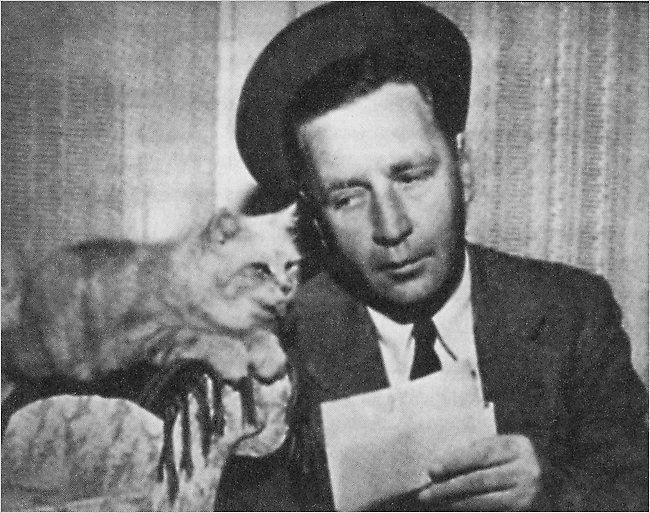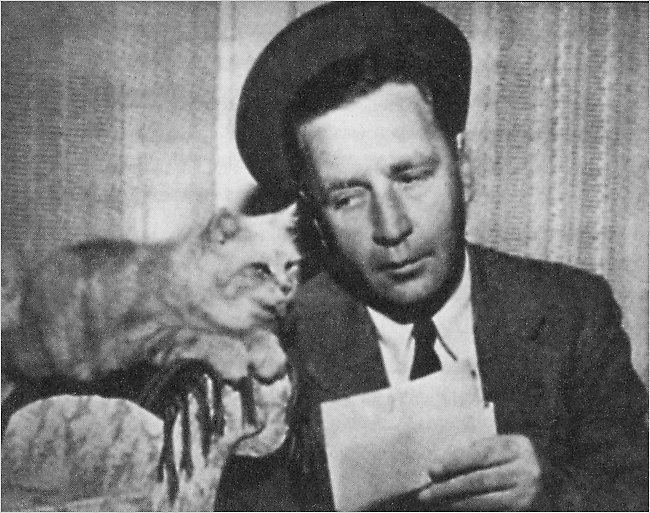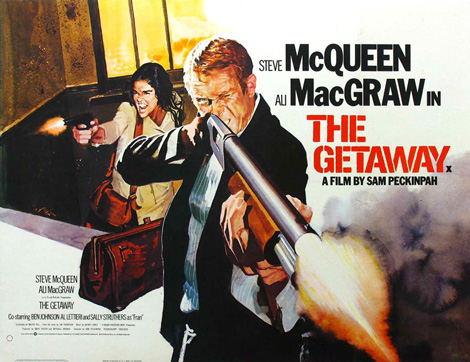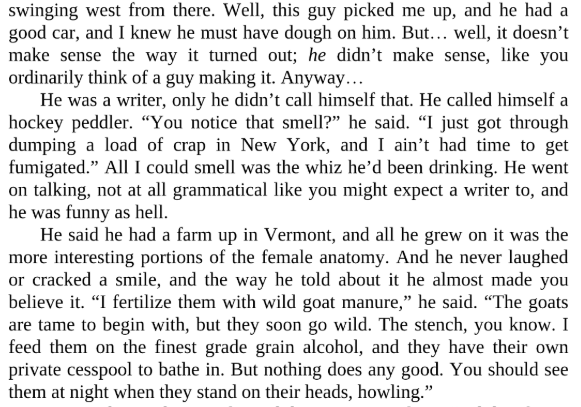
A Garbageman's Notes, Part II

“‘A weed is a plant out of place.’ Let me repeat that. ‘A weed is a plant out of place.’ I find a hollyhock in my cornfield, and it’s a weed. I find it in my yard, and it’s a flower.”
Jim Thompson, The Killer Inside Me
I wonder what Jim Thompson’s biggest nightmare was. I have some guesses. I’ve read virtually everything the guy wrote, pumping out maybe the most insane crime fiction ever produced by an American. I feel I can say with certainty that no matter how warped a character he was bringing to life, they didn’t terrify him half as much as the straight world did. For a guy whose singular achievement was, in my opinion, creating the best fictional representation of a psychopath ever devised, he seemed more afraid of your average loan officer than any of the riff-raff he invented.
Again and again, Jim Thompson created characters who seemed like they’d never existed before, except in other Jim Thompson novels. Maybe Dostoevsky was close, character-wise, with his wonderful low-life mutants, his Smerdyakovs and Marmeladovs and, most of all, his domineering, sardonic fathers, his old man Karamazovs. Thompson got nicknamed “The Dimestore Dostoevsky” after getting rediscovered in the ‘80s. Even though none of Thompson’s books approach your “Crime and Punishment” or “Brothers Karamazov,” I’d say Jim Thompson earned the title. If Dostoevsky’s “Underground Man” was from Texas, you’d have the beginnings of a pretty decent Thompson story.
Now, as Elmore Leonard said, about his similar appellation as “The Dickens of Detroit,” had he lived elsewhere in the Rust Belt, some wag would’ve named him “The Balzac of Buffalo.” Reviewers and critics live for such easily repeatable sobriquets. Thompson, though, shared with Dostoevsky not only a ruinous addiction (to alcohol, not gambling like the Russian), but also a general evasiveness to having his work pinned down to a genre. “Crime fiction” isn’t really an apt encapsulation of the genre Jim Thompson worked in, just an approximation.
Normally that kind of descriptive squishiness prevails among try-hards eager to convince others some postmodern stunt book they’d choked down was worth the trouble - “Sure I didn’t get the story, but you’re not supposed to get it,” etc, etc. But Thompson’s shit is truly weird. Sure, he was producing for the pulp magazines, and the paperback racks, but if you don’t believe me when I say he was singular there, please avail yourself of the first book of his I read, The Getaway, and prepare to be shocked.

If you are at all familiar with The Getaway, it is almost certainly as the Steve McQueen movie adaptation, directed by Sam Peckinpah. Here I have to move carefully. The book is a thousand times more savage but I can’t tell you why. It would ruin it. Suffice to say there are some things in crime fiction that were too savage for Sam Peckinpah to film, surprising though it may seem. And the most I will permit myself to say is, Jim Thompson’s idea of Hell is not to die, but to keep on living. This is, in practice, both a startling effect in crime fiction, and one almost entirely at odds with everything Hollywood would value in a movie.
Hollywood. Well, Jim had a complicated relationship to the place. Even in the pantheon of alcoholic fuck-up pulp writers who eventually landed on a studio lot, Big Jim stands out as truly, ineffably self-destructive. He could not string together enough wherewithal to even hack for dough, as his long-suffering wife could have attested. And in a typically Thompsonian digression, in one of his strangest successful novels, Savage Night, the protagonist, tubercular hitman Carl Bigelow (who Jackie Earle Haley was born to play), encounters a fictional version of the author, upon a strange, hellish dreamscape:

Growing vaginas on a farm, delivering shit to the New York publishers, and sodden with drink the entire time. That was how Jim Thompson saw himself. Bit harsh. But as I sit here thinking about my own situation in 2020, and the hydra heads leering at any would-be writer in this environment, I can’t help but think Jim’s way of relating himself to the business he was in was, strangely, a healthy one.
A common complaint among virtually all the crime writers I love - your Jim Thompson, your George V. Higgins, your Dashiell Hammett - was that they were not taken seriously simply as writers, no genre modifying the word. I understand the frustration, especially if they knew, as I think they did, they were frequently outwriting the mediocrities who tend to dominate American letters, with their sad tales of woe on the docks of their Long Island mansions. Bless my high school heart for reading The Great Gatsby, and thinking how boring it was we didn’t get to see any actual bootlegging.
It was once said of the great John O’Hara - much overlooked in favor of his contemporary, F. Scott Fitzgerald - that he would’ve shown Jay Gatsby and Daisy Buchanan in bed, not hinted at their furtive hand-holding like their actual creator did. Well, fuck, you may not be on any high school reading lists, John O’Hara, but at least you didn’t stoop so low as to stop depicting human beings as some might actually exist, in interesting fashion. And that’s where I think my beloved pantheon of hacks excel.
For all the economic pressures guys like Thompson were under - and I mean, he was destitute for most of his career, churning out book after book and remaining impoverished and drunk - they never sold out their talent. They sold out a lot of other things - friends, family, their futures. Just not their talents. No matter what else they did, they didn’t deign to be anything they weren’t. Their books were warped, unreconstructed, and incapable of gaining respectability. What heroes they were.
Now what can they teach us, with this noble example of selflessly giving us an endlessly undesirable body of fiction, in which the characters swarm like wharf rats? That’s for next time.
